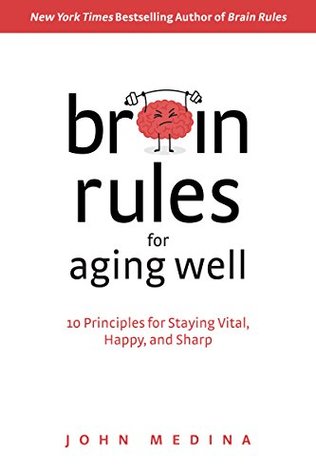More on this book
Community
Kindle Notes & Highlights
by
John Medina
Read between
June 16 - November 29, 2018
The idea is to die young as late as possible. —Ashley Montagu
Retirement is one of the worst things that you can do to yourself!”
People envision retirement as filled with carefree living, lengthy travel, and finally getting to do what you’ve always wanted to do. In reality, retirees’ carefree attitude is term limited. You feel a sense of “getting out of jail free” for a while, but the negatives soon creep in. The truth about retirement’s sunny reputation? It’s a myth. We now know that retirement is extremely stressful for most people.
Retirement, it turns out, increases your probability of dying. If you choose not to retire, you lower your mortality risk by 11 percent—and thus increase your probability of living.
retirees tend to be in worse physical health than people of the same age who stay on the job. They’re 40 percent more likely to have had a cardiovascular incident,
The overall risk for any chronic health condition is 21 percent for seniors who stay in retirement. It’s about half that for seniors who stay employed.
Those who retire perform half as well on tests as those who don’t. Overall memory scores are about 25 percent lower. Retirement is like writing the obituary of someone who hasn’t died yet.
Bottom line? Research science has a simple, one-word response for the ideal age at which you should retire. That word is “never.”
Reading more than 3.5 hours a day even extends one’s life by a whopping 23 percent.
SUMMARY Never retire, and be sure to reminisce • People who retire from a job are at greater risk for physical and mental disabilities, including cardiovascular diseases, depression, and dementia. • Nostalgia is good for you. People who regularly experience nostalgic stimuli are psychologically healthier than those who don’t. • Most seniors retrieve the clearest memories from their late teens/early twenties as well as from the most recent decade of their life. • People who live in “Blue Zones,” areas of the world where life expectancy is the longest,
...more
10 brain rules for aging well 1. Be a friend to others, and let others be a friend to you 2. Cultivate an attitude of gratitude 3. Mindfulness not only soothes but improves 4. Remember, it’s never too late to learn—or to teach 5. Train your brain with video games 6. Look for 10 signs before asking, “Do I have Alzheimer’s?” 7. MIND your meals and get moving 8. For clear thinking, get enough (not too much) sleep 9. You can’t live forever, at least not yet 10. Never retire, and be sure to reminisce


